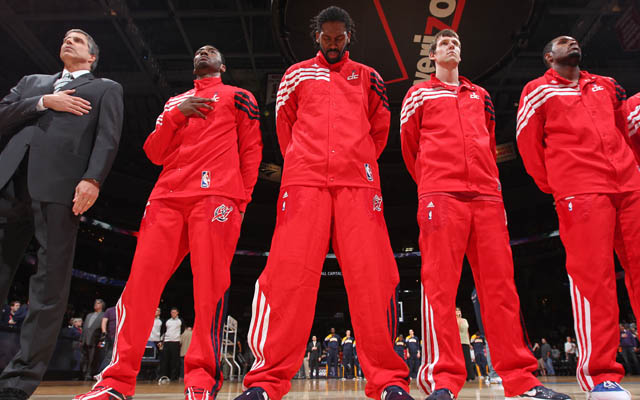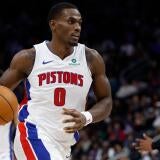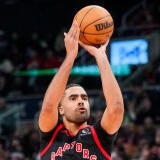NBA Offseason Report: Washington Wizards
Over the next month, CBSSports.com's Eye On Basketball will take a team-by-team look at the 2012 NBA offseason. Next up: the Washington Wizards.
 |
| Wizards. (Getty Images) |
Over the next month, CBSSports.com's Eye On Basketball will take a team-by-team look at the 2012 NBA offseason. Next up: the Washington Wizards.
I. How they finished 2012: Not well. They won 20 games in 2012, and underwent a massive overhaul to completely change the direction of the team. At the trade deadline, they shipped JaVale McGee to Denver for Nene, and then moved Nick Young to the Clippers for Brian Cook. It was a clear indication that they were moving away from the young and the knuckleheaded.
With Nene, they won 10 of their total 20, so there's reason to belive the team was ticking up. Trevor Booker had some solid moments, and they started to look like an actual team. They were still awful, but there were signs.
II. Needs entering the offseason: They needed leadership. They had clearly intended to go towards a veteran approach, bringing in Nene and the four-years left on his contract at $13 million a year. So they needed to move as strong towards veteran players as possible. They needed a shooter as well. Moving Young moved their only veteran shooter and they weren't a good offensive team to start.
III. The Draft: The Wizards landed a huge break when Charlotte selected Michael Kidd-Gilchrist. After their trade to acquire a veteran center and small forward, it left an incredible gap at shooting guard. They needed Bradley Beal to fall to third, and he did.
Beal was a home run for the team. He fills all their needs. A shooter but not a chucker, a 6-4 shooting guard with a solid frame and good wingspan to defend. Quick hands and good basetball IQ, and of course, that shooting form. He provides everything the Wizards need, including a younger player to pair with John Wall in the backcourt so he's not isolated as the youngster.
It was the rare instance where the obvious pick was the right pick, and the pick they made.
IV. Free Agency: And lo, the Wizards became a real team.
The Wizards traded Rashard Lewis' partially-guaranteed expiring contract to New Orleans for Trevor Ariza and Emeka Okafor. In acquiring the pair, the Wizards added a replacement for JaVale McGee, and an upgrade at small forward, where they were hurting.
They also took on a lot of money for two years for veterans who were considered overpaid. Or that's what it looks like. The upside for Washington is that both Okafor and Ariza have player options for 2013-2014. So either way, there's a possibility that they could clear all that money off the books quickly.
Should the Wizards succeed in 2012-2013, Okafor and Ariza may look to cash in, and at that point, hopefully the younger guys are ready to come up and take over. If things don't go well, Ariza and Okafor may stick around to raise their value, and would be expiring contracts.
It's a lot of money for what they will likely do in 2013, but long-term, it's a pretty savvy move, turning a non-asset into a considerable pair of them.
In free agency, the Wiz were quiet, but they did bring in A.J. Price, who should be a solid backup point guard after two years in Indiana.
V. Overall Grade and accomplishments: B.
The Wizards will be better. They won't be great. They may not make the playoffs. They're going to pay quite a bit of money (but still be under the cap) for a team that is likely to still be in the lottery. There are questions about Nene's health, Ariza's offensive abilities, Emeka Okafor's consistency. John Wall has to step up. But they're no longer a joke.
That's crucial. They've changed the culture of the team, which is striking and important. They've shifted the tone and outlook of the team. And while Nene's contract still has a ways left on it for sizable money, it's not a cap killer and it will be movable. They can clear the decks in 2014 if they need to. They're better, they're just not good yet.

















